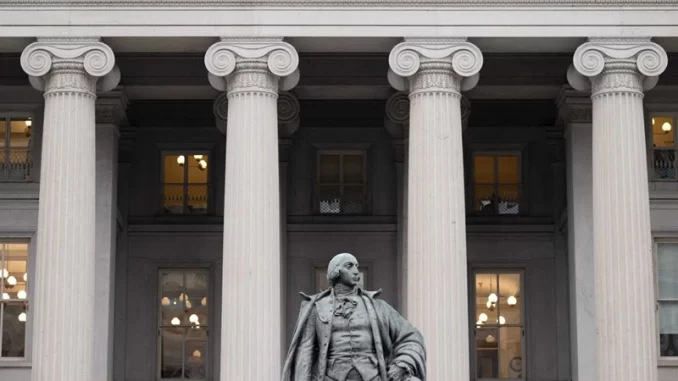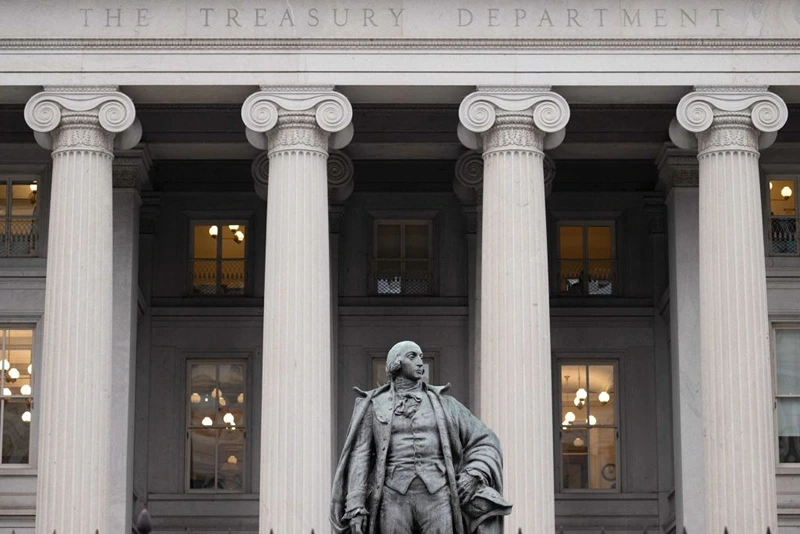

OAN Geraldyn Berry
UPDATED 5:36 PM – Monday, May 1, 2023
Treasury Secretary Janet Yellen has announced on Monday that the deadline to raise the debt ceiling or risk an American default could be as early as June 1st.
“After reviewing recent federal tax receipts, our best estimate is that we will be unable to continue to satisfy all of the government’s obligations by early June, and potentially as early as June 1, if Congress does not raise or suspend the debt limit before that time,” Yellen wrote in a letter to Congress.
However, Yellen emphasized the ambiguity surrounding the situation and stated that the deadline might move to “a few weeks later.”
“This estimate is based on currently available data, as federal receipts and outlays are inherently variable, and the actual date that Treasury exhausts extraordinary measures could be a number of weeks later than these estimates,” she wrote.
Following Yellen’s previous statement that the deadline was June 5th, the new cutoff window will give Congress a shorter window of time to hammer out a resolution. The Treasury Department has frequently modified the “X date” for when money runs out based on tax revenues, which vary and can be difficult to forecast. As the deadline draws closer, the revised date announced on Monday will also be anticipated to change.
In order to pay its debts, the United States had been using what they referred to as “extraordinary measures” since January, when it hit its $31.4 trillion debt ceiling.
Yellen issued a warning saying that the actual date of when the Treasury could run out of money and not be able to make timely and complete payments on the government’s debts might occur “a number of weeks later than these estimates.”
She pointed out that as the federal government’s revenue collection and spending are subject to change, it is difficult to set a precise date.
She stressed that it is “imperative” for legislators to take action as quickly as possible and promised to keep Congress informed when new information became available.
House Speaker Kevin McCarthy (R-Calif.) had recently backed a party-line measure to raise the debt ceiling for another year, roll back some of Biden’s renewable energy initiatives, and impose a number of unnamed expenditure cutbacks. However, Senate Majority Leader Chuck Schumer (D-N.Y.), has criticized the bill and promised to hold hearings highlighting “the damage” it would cause.
He has called it a path to default.
The bill sponsored by the House GOP asks for limiting future growth to 1% and reducing discretionary expenditure to levels equivalent to fiscal 2022. Republican budget cutbacks would target the 15% of the budget that covers financing for education, job training, air travel, rail safety, law enforcement, and veterans’ benefits since many of them claim they do not want to slash military expenditure.
“It is impossible to predict with certainty the exact date when Treasury will be unable to pay the government’s bills, and I will continue to update Congress in the coming weeks as more information becomes available,” Yellen wrote. “Given the current projections, it is imperative that Congress act as soon as possible to increase or suspend the debt limit in a way that provides longer-term certainty that the government will continue to make its payments.
Stay informed! Receive breaking news blasts directly to your inbox for free. Subscribe here. https://www.oann.com/alerts

